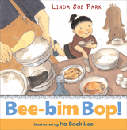|
"It was a dark and rainy night." Actually it wasn't dark or too rainy, but a very enlightening many nights in November 2005 when I wrote my first novel. So it's true, a novel can be written in a month and I and nearly 10,000 others around the world spent the month of November proving this point.
If you didn't catch my article from last year or my recent editor's messages alerting you to National Novel Writing Month (NaNoWriMo), then you might not know what I am writing about.
NaNoWriMo is an event held for the past six years as a kind of writers' marathon challenge. Instead of running 26 miles, people that sign up for this challenge try to write 50,000 words of fiction in one month. In November of 2005 over 59,705 took that challenge and 9,765 of us reached that goal.
For all of you published professional novel writers out there, please don't scoff at the NaNoWriMo participants' efforts. Like the casual joggers that decide to participate in local marathons, most of us are probably not in your Olympic class of writing. But for a multitude of reasons, maybe as many reasons as the 60,000 people that participated, we chose to find out what you already experienced. We wanted to learn of the agony and ecstasy of creating the ultimate creative work for any writer, that being the writing of a novel.
The one message I want to convey is that if I could write 50,000 words in a month, so can you. I am not by any means a very fast or great writer. All that is needed is a little bit of creativity, a willingness to take on the challenge, and enough time.
On average I spent two hours and 32 minutes a day for 29 days on my novel. That amounts to approximately 11 words a minute. Most of you can probably beat this. If you could average 20 words a minute, you'd only need about 84 minutes a day. If you can pump out 50 words a minute, then you'd only need 34 minutes.
For some of you, that's not too much of a sacrifice. All you need to do is just organize your time better and cut out things you don't really need to be doing. In my case I just watched less television. We all should be spending our free time reading anyway, right? We at AACP would appreciate it. Kidding aside, learning to organize your time better is a very beneficial side effect of doing NaNoWriMo. For me, I found out that I really do have more time than I thought. I've partially gone back to my wasteful ways, but I now know, that if I truly desire to accomplish some project, I can dig deep and find the time.
This leaves the motivational reasons that hold us back. So why should you do it? Haven't you ever contemplated that if such and such celebrity could write a book, why couldn't I? But intellectual jealousy is not reason enough for most of you to take on such a major task. Perhaps some of you believe that novel writing is your true calling and want to try it out. Whatever the case, everyone that takes on this challenge has a different reason for wanting to write a novel. Perhaps you could use some of my reasons.
Besides for giving me material to write about for this newsletter, one of my own personal reason for participating in NaNoWriMo was to use my novel to record a snap shot of who I am or what I was thinking about in 2005. Unless you are a completely creative person that can imagine worlds that are totally different from your own experience, then some part of you will be contained within your book. With the plot I chose for my book, my characters were able to articulate many of the thoughts I have about things. You could do the same.
Upon doing some family research, I often found myself thinking of how little we know about our ancestors. Most of it is just the minimal facts such as date of birth or death and how many children they had. Unless you're famous, most of us will never have a biography written about us.
|
And once the people that knew you are all gone, following generations will have no direct recollections of you. So why not try to record some part of your thoughts for posterity? If you take good care of your book, it will most likely survive longer than you will. I'm sure most of you have something you've learned that you'd like to share with someone.
For those of you that are unconfident of your writing skills, don't worry about it too much. The whole point of doing NaNoWriMo with such a tight deadline is to throw out the inhibitions that keep you from writing. Don't worry about the quality, just get what you want recorded. It doesn't matter whether you put it in writing or just make audio or video recordings. Hopefully future generations will have some way of retrieving what you recorded.
You can wait till the next NaNoWriMo in November of 2006, but if you have something you'd like to create for posterity, just go ahead and make any month your NaNoWriMo. Set up your own challenges or deadlines. Maybe do something every day for posterity, but just don't let another day slip away. Tomorrow may never come.
Here are some other thought about my novel writing experience.
At the beginning, I had a lot of second thoughts about signing up for NaNoWriMo. Would it be worth the added stress-don't we already have enough? Was this a dumb idea, a waste of my time? Why try it if I wasn't sure if I could finish it? Was my basic idea good enough and would I be able to write 50,000 words on this topic? Don't I have better things to do with my time?
In the end I put aside my second thoughts and went ahead with signing up for NaNoWriMo. I figured that the only way to answer most of my second thoughts was to just go ahead and do it. And when it was all over I think I did have my answers.
It wasn't a waste of time at all and it was well worth the little bit of extra stress. Most anything you do in life is a learning experience and this experience has given me a new perspective on the book making process that will hopefully prove to be invaluable for my work with AACP. I don't know if this experience has improved my writing as I had hoped. Frankly, I think my writing has gotten sloppier. But I do believe that I have a new appreciation for novelist and the work that they produce.
As expected, I did have some struggles with ideas for the book. An interesting observation is that you can spend an awful lot of time researching small things that don't amount to much towards the plot. Sometimes the research and outlining actually slowed me down. For most of my past literary works I have found research and outlining to be invaluable tools to writing a good piece, but for speed novel writing, it can become a hindrance. I think I now understand why a lot of books seem to start so slow. It takes awhile for a story to amass enough momentum. Once the characters are developed and the plot has some direction, the book truly begins to write itself. Again, just get started. You can always go back and add the needed researched details once you've completed the first draft.
I wasn't able to complete my story after writing 50,000 words, but there's enough so far to give me encouragement that what I had written wasn't that bad. It still needs an ending and a lot of edits before I dare let anybody see it, but I can't help smiling when I think about what I've achieved. I rank this achievement up there with my edit work on the book Petals of the Vanda and my past work as a software engineer making wonderful educational products. But this time I did it all on my own.
Thank you very much Chris Baty for founding National Novel Writing Month!
|







